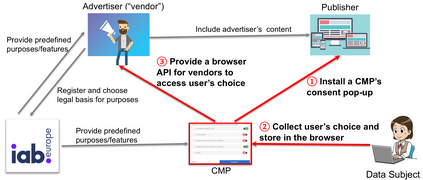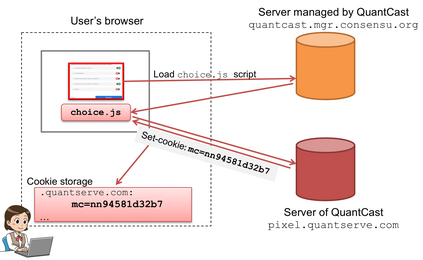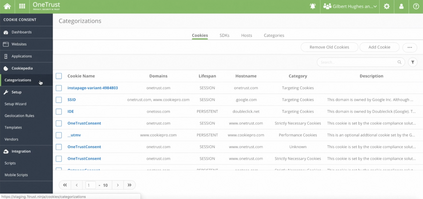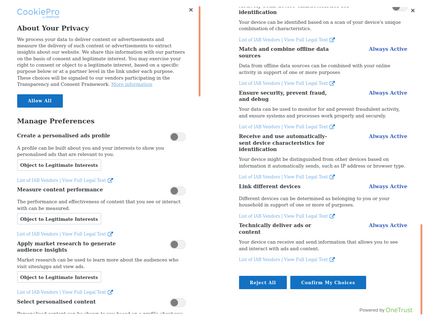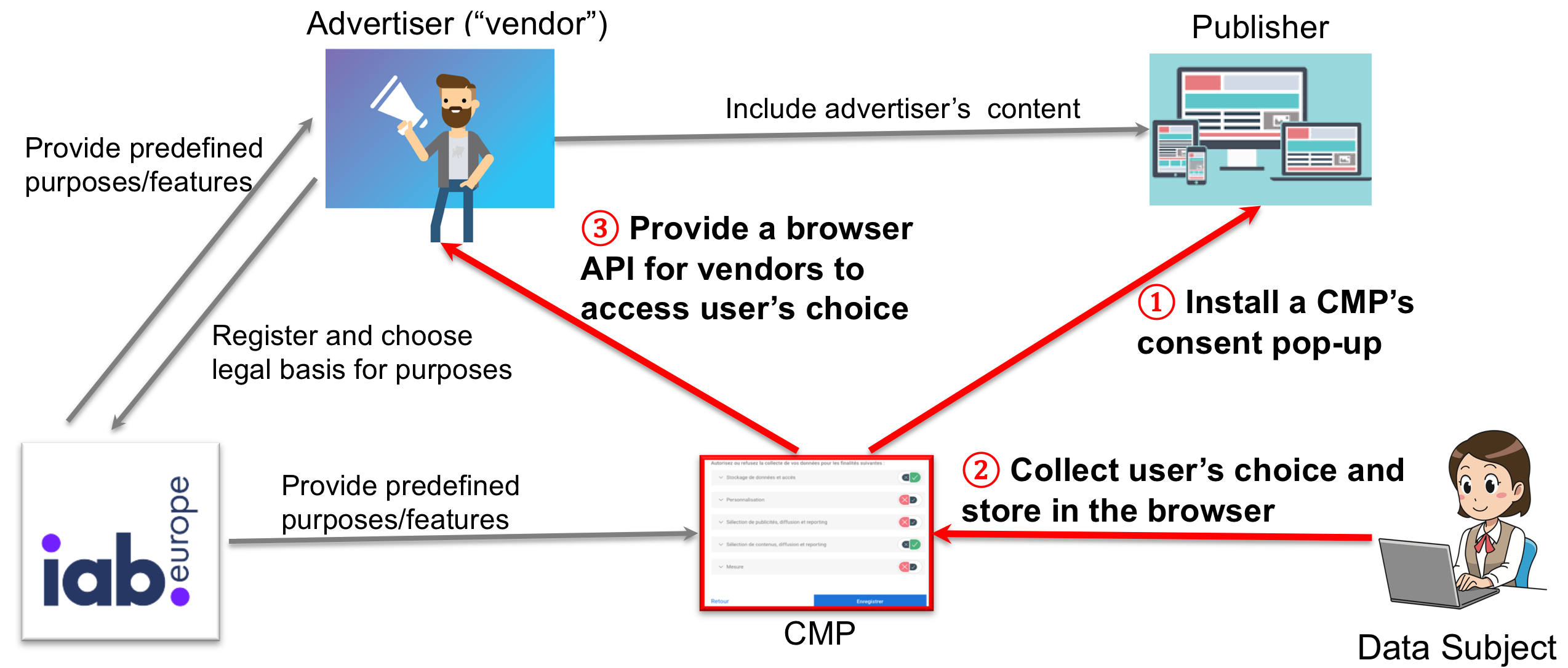Consent Management Providers (CMPs) provide consent pop-ups that are embedded in ever more websites over time to enable streamlined compliance with the legal requirements for consent mandated by the ePrivacy Directive and the General Data Protection Regulation (GDPR). They implement the standard for consent collection from the Transparency and Consent Framework (TCF) (current version v2.0) proposed by the European branch of the Interactive Advertising Bureau (IAB Europe). Although the IAB's TCF specifications characterize CMPs as data processors, CMPs factual activities often qualifies them as data controllers instead. Discerning their clear role is crucial since compliance obligations and CMPs liability depend on their accurate characterization. We perform empirical experiments with two major CMP providers in the EU: Quantcast and OneTrust and paired with a legal analysis. We conclude that CMPs process personal data, and we identify multiple scenarios wherein CMPs are controllers.
翻译:协议管理提供商(CMPs)提供协议跳弹,这些自来已嵌入更多的网站,以便能够简化遵守《电子空闲指令》和《一般数据保护条例》规定的同意法律要求;它们执行《透明度和同意框架》(当前版本v2.0)中由互动广告局欧洲分部提出的同意收集标准;尽管机构间咨询委员会的《技术功能、功能、功能和功能分类》将CMPs定性为数据处理者,但《议定书》/《公约》缔约方会议的实际活动往往将其定性为数据控制者。 判断其明确作用至关重要,因为遵约义务和CMPs的责任取决于其准确的定性。我们与欧盟两个主要CMPs提供者进行了经验性实验:量化和OneTrust,并与一项法律分析配合。我们的结论是,CMPs处理个人数据,我们确定CMPs作为控制者的多种情景。

